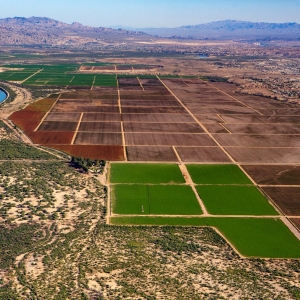The Stream, December 11, 2020: Key German Shipping Route Threatened By Low Water Levels
GLOBAL DAILY WATER NEWS
- Low water levels along Germany’s Rhine river threatens one of the country’s most important shipping routes.
- New documents cast doubt on the environmental safety of plans to transform coal mines into manmade lakes in Australia.
- A new study finds that arsenic in water disproportionately affect small, Hispanic communities in the United States.
- Lansing, Michigan extends its water shutoff moratorium until mid-April.
Colorado preemptively activates its municipal drought response as forecasts predict a dry 2021.
“All the groundwork we can lay today is worth it. Everybody hopes it’s not needed. But sticking our heads in the sand isn’t going to do anybody any good. It’s ugly and it’s getting uglier.” – Jerrod Biggs, deputy director of utilities in Durango, Colorado. After several cities expressed concerns over what is set to be a dangerously dry 2021, the state of Colorado has activated the municipal part of its emergency drought plan for only the second time in history. The Colorado Sun reports that cities usually don’t make decisions about whether to impose watering restrictions until the spring. This year, Megan Holcomb, who oversees the state’s lead water policy agency, said that spring drought will occur even with an average snowpack. Drought in Colorado has become more common over the last two decades. Now, more than two-thirds of the state’s terrain is classified as being in extreme or exceptional drought, according to the U.S. Drought Monitor.
IN RECENT WATER NEWS
A Year In Water, 2020 – Societies confront the fallout from rapid environmental change.
In the Northern Great Plains, A Search for Ways to Protect Drinking Water from Fossil Fuel Industry Pollution – North Dakota’s water supplies are at risk from contaminants from fracking wastewater, but residents are fighting back.
Documents Raise Concerns Over Government Plans to Transform Coal Mines Into Pit Lakes In Australia
New documents show that a plan to turn three open-cut coal mines in Australia’s Latrobe Valley into “pit lakes” would worsen the ecological health of the Latrobe River system. The Sydney Morning Herald reports that documents obtained by the advocacy group Environment Victoria, which are now publicly available, also show that the creation of the “pit lakes” could mean that by the 2030s, there would be less water available in the Latrobe River system than would be needed for minimum environmental flows and could mean a loss to the environment and Aboriginal cultural values of the rivers. The findings have raised serious questions about the government’s plan to divert mass amounts of water to fill the lakes.
TODAY’S TOP WATER STORIES, TOLD IN NUMBERS
36,406 COMMUNITY WATER SYSTEMS
A new study in Environmental Health Perspectives estimated the three year arsenic concentrations for 36,406 community water systems across the United States and found that despite the latest regulatory standard, inequities remain in arsenic levels in drinking water. Arsenic concentrations decreased significantly between 2006 and 2011, the study found, although water systems reliant on groundwater that serve small and Hispanic communities in the Southwest are the most likely to be affected by arsenic in drinking water. The authors concluded that although the U.S. EPA’s Arsenic Rule and maximum contaminant level (MCL) change was able to reduce public drinking water arsenic exposure for many sectors of the population, stronger regulations, targeted compliance enforcement and continued state and federal infrastructure funding is needed to further reduce inequalities.
In context: Explainer: Who regulates U.S. drinking water, and how?
2,973 CUSTOMERS
The city of Lansing, Michigan has extended its water shutoff moratorium until April 15. The Lansing State Journal reports that the Lansing Board of Water and Light (BWL) has used around $665,000 from the federal CARES Act to assist 2,973 of their 56,000 customers with water payments. Gov. Gretchen Whitmer stopped Michigan utility companies from shutting off water through the end of the year, but the order was struck down by a Michigan Supreme Court ruling.
In context:
- Michigan Allocates $20 Million to Relieve Customer Water Debts
- Water Shutoffs Are Suspended, But the Bills Will Still Be Due
ON THE RADAR
Shipping along the river Rhine in Germany has been threatened by low water levels that have prevented cargo vessels from sailing fully loaded, Reuters reports. Shallow water has increased costs for cargo owners over the past month, although traders said rain forecast for later this week could help raise water levels. Low water levels have plagued the Rhine, which has been heralded as an important shipping route for grains, minerals and coal and oil products. in recent years. In 2018, a drought led to supply bottlenecks and production problems among German companies.
Jane is a Communications Associate for Circle of Blue. She writes The Stream and has covered domestic and international water issues for Circle of Blue. She is a recent graduate of Grand Valley State University, where she studied Multimedia Journalism and Women, Gender and Sexuality Studies. During her time at Grand Valley, she was the host of the Community Service Learning Center podcast Be the Change. Currently based in Grand Rapids, Michigan, Jane enjoys listening to music, reading and spending time outdoors.






Leave a Reply
Want to join the discussion?Feel free to contribute!